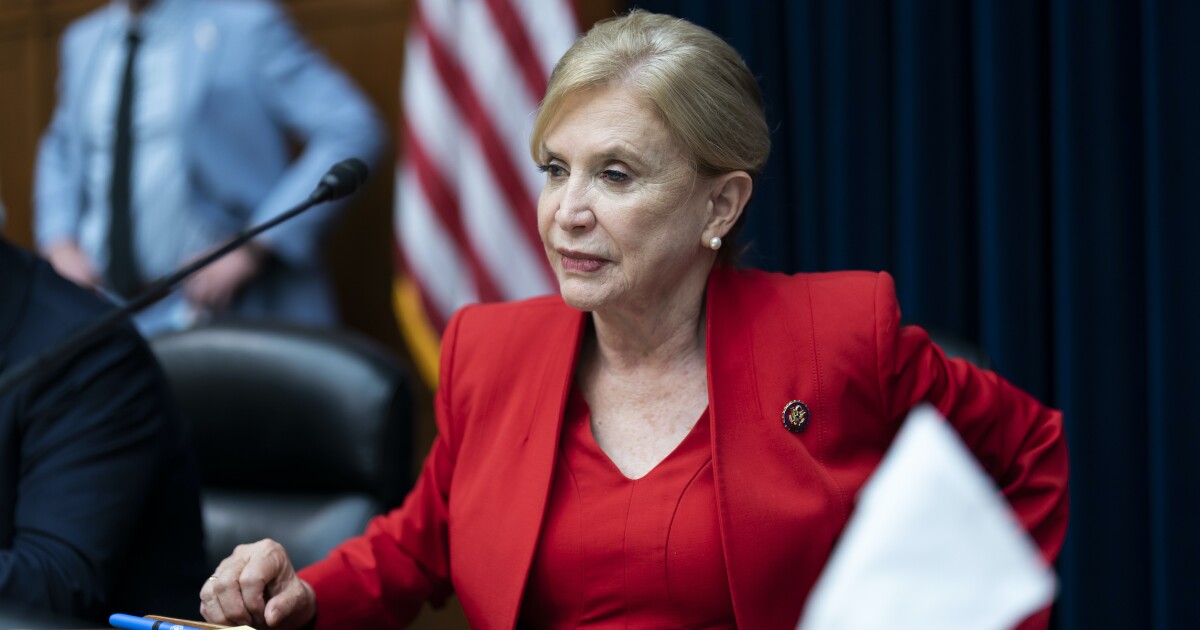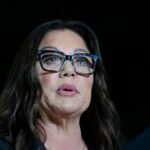

State legislators were among the witnesses at a hearing of the House Committee on Oversight and Reform on the Supreme Court‘s recent abortion ruling, raising their profiles as abortion rights activists as the matter returns to states to legislate.
SEVEN NOTABLE MOMENTS FROM THE HOUSE JAN. 6 HEARING ON TRUMP AND EXTREMIST GROUPS
The committee’s Wednesday hearing centered on the Supreme Court’s decision in Dobbs v. Jackson Women’s Health Organization that overturned Roe v. Wade and the impact on states that have restricted the procedure.
State Sen. Mallory McMorrow, a Michigan Democrat, said the “people are speaking — they are speaking very loudly” in opposition to allowing a 1931 law making abortion a felony in the state “with no exception for age, rape, or incest” from going into effect.
“Not only would doctors and medical professionals be sent to jail, but so too would countless women and girls,” McMorrow said.
McMorrow delivered an April speech against anti-LGBT rhetoric that went viral, raising her political profile and gaining the attention of the White House. Her congressional testimony on the Dobbs ruling will likely make her one of the faces of pro-abortion rights efforts.
State Rep. Renitta Shannon, a Georgia Democrat, also testified at the hearing and will likely also see her political profile raised as an abortion rights activist.
Shannon said she underwent an abortion 20 years ago and argued that increasing barriers to abortion also increases adverse maternal outcomes.
Witnesses also included Alliance Defending Freedom’s senior appellate counsel, Erin Hawley, who was counsel to Mississippi for the Dobbs case.
Hawley, also the wife of U.S. Sen. Josh Hawley (R-MO) and a former clerk to Chief Justice John Roberts, took aim at arguments that abortion bans would criminalize care for ectopic pregnancies or miscarriages.
“So I think there’s a few things on which we need to set the record straight: one, that an ectopic pregnancy, treatment for that condition never involves an abortion,” Erin Hawley said, adding that Planned Parenthood’s website states that “treating an ectopic pregnancy isn’t the same thing as getting an abortion.”
“The same is true of a miscarriage,” Erin Hawley said. “An abortion is a situation in which a child, as the Supreme Court explained in Dobbs, is purposely put to death. It is the intentional destruction of a human being. Neither miscarriages nor medical emergencies nor ectopic pregnancies involve that situation.”
Rep. Carolyn Maloney (D-NY), the chairwoman of the committee, noted a number of pieces of abortion rights legislation under consideration by the House and took aim at a Senate rule Democrats blame for the legislation’s grim prospects in the upper chamber.
“We should not let filibuster rules stand in the way,” Maloney said.
Fatima Goss Graves, president and CEO of the National Women’s Law Center, told the committee, “This is not a drill,” arguing that American democracy itself was “on the brink of demise” over the Dobbs ruling.
Democratic witnesses and lawmakers argued abortion bans will lead to states prosecuting or investigating women for undergoing abortions or even miscarriages.
But such measures are unpopular among anti-abortion activists. In a May letter to state legislators, after a draft of the Dobbs decision was leaked but before the final ruling was issued, a coalition of dozens of state and national anti-abortion groups, including March for Life Action, the Susan B. Anthony List, New Wave Feminists, and the U.S. Conference of Catholic Bishops, wrote that they do not support criminalizing women who undergo abortions.
CLICK HERE TO READ MORE FROM THE WASHINGTON EXAMINER
“We state unequivocally that we do not support any measure seeking to criminalize or punish women and we stand firmly opposed to include such penalties in legislation,” the letter said, adding, “We must ensure that the laws we advance to protect unborn children do not harm their mothers.”






